Are you getting your wisdom teeth removed soon? Don’t worry, taking care of your mouth after wisdom teeth extraction is easier than you might think. In this article, we’ll cover all the important steps you need to follow to ensure a smooth recovery. By the end of this article, you’ll have all the knowledge you need to take care of your wisdom teeth extraction like a pro.
Firstly, it’s essential to take it easy after your wisdom teeth extraction. Avoid any strenuous activities and give yourself some time to rest. Remember to apply an ice pack on your cheeks for the first 24 hours to reduce swelling. Additionally, make sure to follow a soft food diet for a few days, as hard or crunchy foods can irritate the extraction site. It’s also important to keep your mouth clean to prevent infection. Gently rinse your mouth with warm saltwater several times a day. And don’t forget to brush your teeth, but make sure to avoid the extraction site. We’ll go into more detail on each of these steps later in the article.
Preparing for Wisdom Teeth Extraction
Consulting with a Dentist
If you are experiencing pain or discomfort in your wisdom teeth, it is important to consult with a dentist as soon as possible. The dentist will examine your teeth and evaluate the need for extraction. They may also discuss any concerns or questions you have about the procedure.
Getting X-rays and Evaluating the Teeth
Before the extraction, your dentist will likely request X-rays to assess the position and condition of your wisdom teeth. This will help determine the best approach for removal. The X-rays will also provide valuable information about the surrounding teeth, nerves, and jawbone.
Making Preparations for the Procedure
Once the need for wisdom teeth extraction is confirmed, you and your dentist will discuss the details of the procedure. Your dentist will provide instructions regarding fasting, medications, and any necessary preparations prior to the extraction. It is important to follow these instructions carefully to ensure a smooth and successful procedure.
The Procedure of Wisdom Teeth Extraction
Administering Local or General Anesthesia
On the day of the extraction, your dentist will administer local or general anesthesia to ensure your comfort throughout the procedure. Local anesthesia numbs the extraction site and surrounding areas, while general anesthesia induces a temporary state of unconsciousness. The choice of anesthesia will depend on various factors, such as the complexity of the extraction and your dental anxiety.
Making Incisions and Removing the Wisdom Teeth
Once you are properly anesthetized, your dentist will make incisions in the gum tissue to access the wisdom teeth. If the teeth are impacted or partially erupted, they may need to be sectioned for easier removal. Using specialized instruments, the dentist will carefully extract the wisdom teeth from their sockets. This process may involve some pressure or pushing, but it should not cause significant pain.
Cleaning and Stitching the Extraction Sites
After the wisdom teeth have been removed, your dentist will clean the extraction sites thoroughly to remove any debris or bacteria. In some cases, they may also need to remove any bone or tissue fragments. Once the extraction sites are clean, the dentist will use dissolvable or non-dissolvable stitches to close the incisions. These stitches help promote healing and prevent infection.
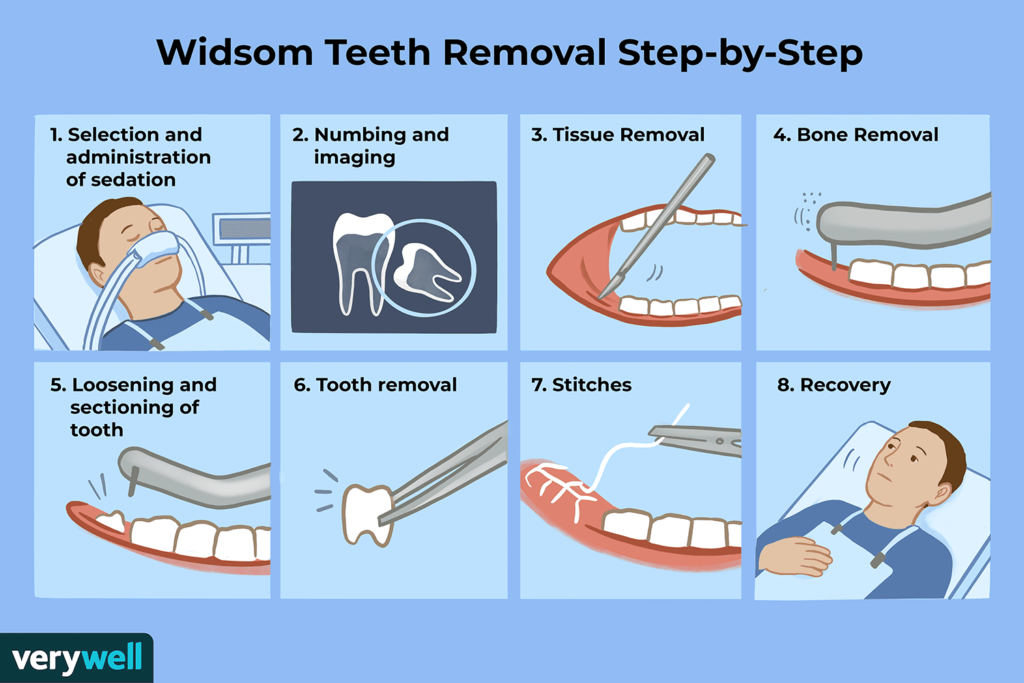
Immediate Aftercare Following Extraction
Managing Bleeding and Swelling
After the extraction, it is normal to experience some bleeding and swelling. To control bleeding, your dentist will place gauze pads over the extraction sites. Bite down gently on the gauze pads and change them regularly as they become soaked with blood. Applying gentle pressure will help promote clot formation and minimize bleeding. Additionally, you can use an ice pack or cold compress on the outside of your cheek to reduce swelling.
Taking Prescribed Pain Medication
Your dentist may prescribe pain medication to help manage any discomfort or pain you experience after the procedure. It is important to take the medication as directed and not exceed the recommended dosage. If over-the-counter pain relievers are sufficient for managing your pain, consult with your dentist before taking any additional medication.
Avoiding Activities that Can Disrupt Healing
To ensure proper healing and minimize the risk of complications, it is crucial to avoid certain activities immediately after the extraction. These activities include smoking, using straws, spitting forcefully, and eating hard or crunchy foods. Disrupting the blood clot that forms in the extraction sites can lead to a painful condition called dry socket.
Dietary Guidelines After Wisdom Teeth Extraction
Consuming Soft and Cold Foods
In the first few days following the extraction, it is advisable to consume only soft foods that require minimal chewing. This will help prevent irritation and damage to the extraction sites. Examples of soft foods include mashed potatoes, yogurt, smoothies, soups, and pudding. Additionally, consuming cold foods or using ice chips can help alleviate swelling and provide relief.
Avoiding Hard and Crunchy Foods
Avoiding hard and crunchy foods is essential during the initial healing phase. These foods can irritate the extraction sites, dislodge blood clots, and interfere with the healing process. Stay away from foods like popcorn, nuts, chips, and hard candies until your dentist gives you the go-ahead to resume a regular diet.
Maintaining Adequate Hydration
Although it may be tempting to drink through a straw or consume carbonated beverages, it is best to avoid these during the first few days after extraction. Using a straw can dislodge blood clots and delay healing, while carbonated drinks may cause discomfort. Instead, focus on staying hydrated by drinking plenty of water, preferably at room temperature.
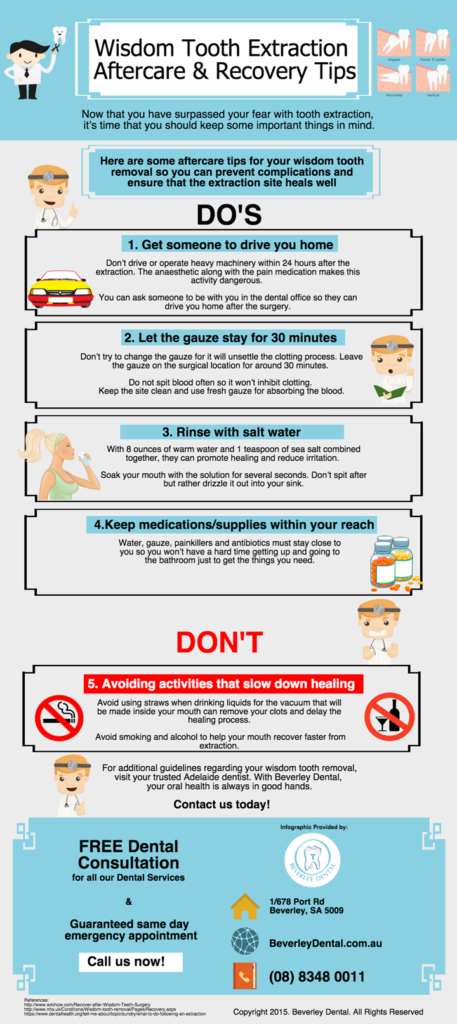
Oral Hygiene Practices Post-Extraction
Gently Brushing Teeth and Tongue
Maintaining oral hygiene is crucial even after wisdom teeth extraction. However, it is important to be gentle and avoid brushing the extraction sites for at least 24 hours after the procedure. Afterward, you can gently brush your teeth, avoiding the surgical areas. Be sure to also brush your tongue to keep your mouth clean and prevent bad breath.
Rinsing with Warm Saltwater
To keep your mouth clean and promote healing, rinse your mouth with warm saltwater several times a day, starting from the day after extraction. Dissolve half a teaspoon of salt in a cup of warm water, swish the solution in your mouth for about 30 seconds, and then spit it out. This will help reduce swelling and keep the extraction sites clean.
Avoiding Mouthwash and Tobacco Products
While saltwater rinses are beneficial, it is important to avoid using mouthwash during the initial healing phase. Mouthwash can disrupt the healing process and potentially irritate the extraction sites. Similarly, it is crucial to refrain from using any tobacco products, as they can delay healing and increase the risk of infections and complications.
Managing Pain and Discomfort
Using Cold Compresses
To alleviate pain and reduce swelling, you can apply a cold compress or ice pack to the outside of your cheek. Wrap the cold pack in a thin cloth and apply it to the affected area for about 15 minutes at a time. This will help numb the area and provide temporary relief.
Applying Warm Compresses for Muscle Soreness
In addition to pain at the extraction sites, you may experience muscle soreness in your jaw due to the procedure. Applying a warm compress or using a heating pad on a low setting can help ease such muscle pain. However, it is important to wait at least 24 hours after the extraction before using heat therapy.
Taking Over-the-Counter Pain Relievers
If the prescribed pain medication is not sufficient to manage your discomfort, your dentist may recommend over-the-counter pain relievers. Nonsteroidal anti-inflammatory drugs (NSAIDs), such as ibuprofen, can help reduce pain and inflammation. However, always consult with your dentist or healthcare provider before taking any additional medication.
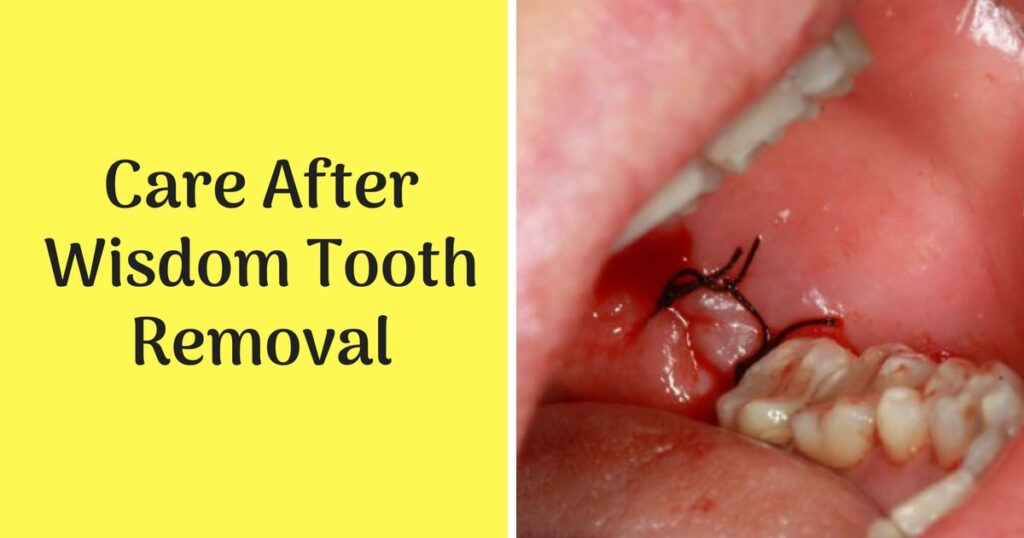
Signs of Complications and When to Seek Help
Excessive Bleeding or Swelling
While some bleeding and swelling are normal after wisdom teeth extraction, excessive bleeding or swelling may indicate a problem. If you experience heavy bleeding that does not subside after applying pressure for a significant period, or if swelling continues to worsen after the first few days, contact your dentist immediately for further evaluation.
Persistent or Worsening Pain
While it is common to experience some pain and discomfort after wisdom teeth extraction, persistent or worsening pain may be a sign of complications. If the pain does not improve with prescribed or over-the-counter medication, or if it becomes increasingly severe, it is important to seek professional help as soon as possible.
Foul Taste or Odor from Extraction Sites
If you notice a foul taste or odor emanating from the extraction sites, it could indicate an infection. Infections can occur if the extraction sites are not kept clean or if the blood clot is dislodged. Contact your dentist promptly if you experience these symptoms, as infections can lead to further complications if left untreated.
Follow-up Care and Follow-up Appointments
Attending Scheduled Check-ups
Following wisdom teeth extraction, your dentist will schedule follow-up appointments to monitor your healing progress and address any concerns. It is crucial to attend these check-ups as recommended. During these visits, your dentist will assess the extraction sites, remove any stitches if needed, and ensure that you are healing properly.
Getting Stitches Removed
If you have non-dissolvable stitches, your dentist will typically remove them at a follow-up appointment. This usually occurs about a week after the extraction. Your dentist will gently remove the stitches, ensuring that the extraction sites are healing and that there are no signs of infection or complications.
Monitoring Healing Progress
Even after the stitches are removed, it is important to continue monitoring the healing progress of the extraction sites. Pay attention to any changes in your symptoms, such as increased pain, swelling, or discharge. If you notice anything unusual, contact your dentist promptly to prevent potential complications.
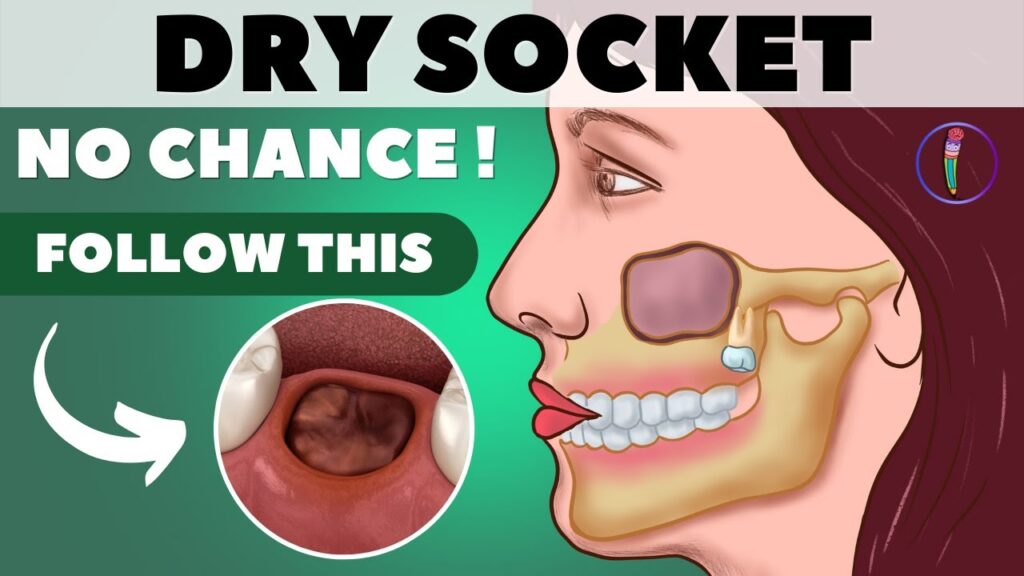
Long-term Care for Wisdom Teeth Extraction
Practicing Good Oral Hygiene
Maintaining good oral hygiene is essential not only for the healing process but also for long-term oral health. Brush your teeth twice a day with a soft-bristled toothbrush and fluoride toothpaste. Floss daily, taking care to avoid the extraction sites until they have fully healed.
Visiting the Dentist Regularly
Regular dental check-ups are crucial to monitor your overall oral health, including the healing of the extraction sites. Your dentist will evaluate the condition of your remaining teeth and ensure that there are no signs of infection or complications. Follow their recommended schedule for routine dental visits.
Monitoring Adjacent Teeth and Occlusion
After wisdom teeth extraction, it is important to keep an eye on the adjacent teeth and how your bite or occlusion fits together. Sometimes, the removal of wisdom teeth can affect the alignment of neighboring teeth or the overall balance of your bite. If you notice any changes or concerns, consult with your dentist to address them promptly.
Potential Risks and Complications
Dry Socket
Dry socket, or alveolar osteitis, is a condition that can occur after wisdom teeth extraction if the blood clot in the extraction socket is dislodged or dissolves prematurely. This can lead to severe pain and delay healing. To minimize the risk of dry socket, follow your dentist’s instructions regarding aftercare and avoid activities that can disrupt the extraction sites.
Infection
Infections can occur after wisdom teeth extraction due to bacteria entering the extraction sites. Symptoms may include pain, swelling, redness, discharge, or foul odor. To reduce the risk of infection, maintain good oral hygiene, follow aftercare instructions, and promptly seek professional help if you suspect an infection.
Nerve Damage
Nerve damage is a potential complication of wisdom teeth extraction, although it is rare. It can cause numbness, tingling, or a loss of sensation in the affected areas of the mouth, tongue, or lips. While most nerve damage resolves on its own within a few weeks or months, severe cases may require further treatment or referral to a specialist.
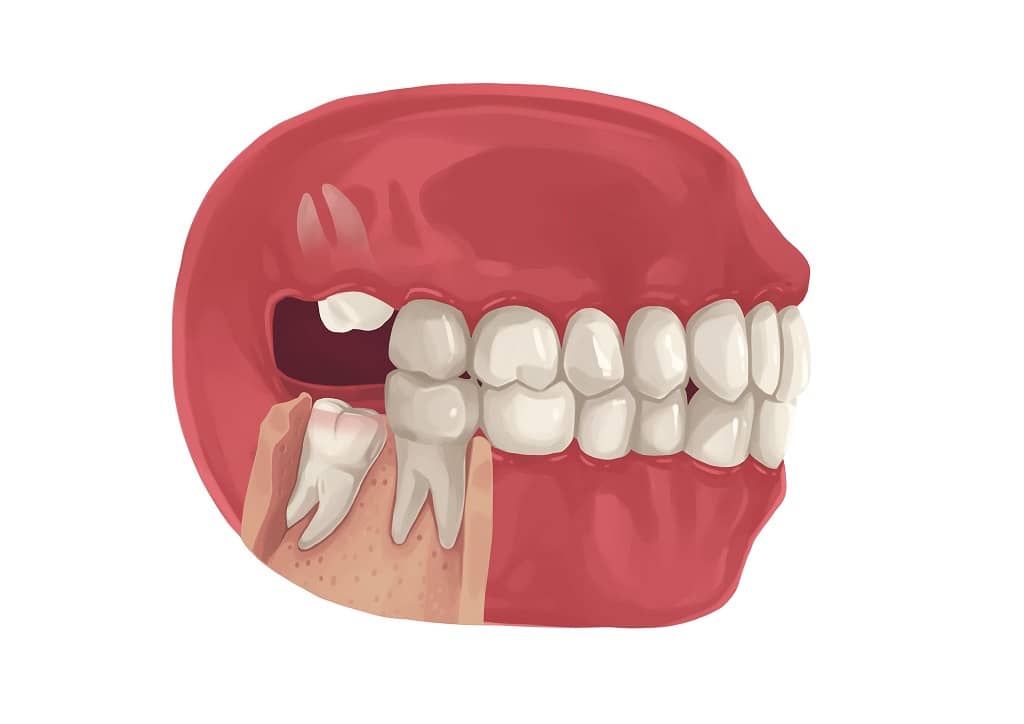
Preventive Measures to Avoid Extraction
Regular Dental Examinations and Cleanings
Regular dental examinations and cleanings are essential for maintaining oral health and detecting potential issues with your wisdom teeth early on. Your dentist can monitor the development and alignment of your wisdom teeth and recommend extraction if necessary to prevent complications.
Maintaining Good Oral Health Habits
Practicing good oral hygiene habits, such as brushing twice a day, flossing daily, and using mouthwash, can help prevent tooth decay and gum disease. By maintaining good oral health, you may reduce the risk of wisdom teeth extraction and other dental problems.
Discussing Alternatives with the Dentist
In some cases, there may be alternatives to wisdom teeth extraction depending on the specific situation. If you have concerns or questions about the extraction, discuss them with your dentist. They can provide information about alternative treatment options and help you make an informed decision.
Frequently Asked Questions about Wisdom Teeth Extraction
At what age should wisdom teeth be extracted?
The ideal age for wisdom teeth extraction varies for each individual. In general, it is recommended to have wisdom teeth evaluated starting in the late teens or early twenties. However, some individuals may need extraction earlier if there are signs of impaction, crowding, or other complications.
Are there alternatives to extraction?
In certain cases, your dentist may recommend alternatives to wisdom teeth extraction. Examples include orthodontic procedures to create more space for the wisdom teeth, or preventive measures to minimize the risk of complications. It is important to discuss these alternatives with your dentist to determine the best course of action for your individual situation.
Can I drive myself home after the procedure?
If you are undergoing local anesthesia, it is generally safe to drive yourself home after the procedure. However, if you are receiving general anesthesia or if you feel dizzy or disoriented, it is best to arrange for someone to drive you home. Follow your dentist’s recommendations to ensure your safety and comfort.
Additional Tips for Optimal Recovery
Using a Straw for Drinking
In the days following wisdom teeth extraction, it is advisable to avoid using a straw for drinking. Sucking through a straw can dislodge the blood clot and increase the risk of dry socket. Instead, drink directly from a cup or glass, taking small sips to avoid discomfort.
Avoiding Smoking and Alcohol
Smoking and consuming alcohol can delay the healing process and increase the risk of complications after wisdom teeth extraction. It is best to refrain from smoking and avoid alcoholic beverages until your dentist gives you the green light. This will help promote optimal healing and minimize the risk of infection.
Getting Plenty of Rest
After wisdom teeth extraction, it is important to allow your body to rest and recover. Avoid strenuous physical activities for the first few days and get plenty of rest. This will help your body heal more effectively and minimize the risk of post-operative complications.
Conclusion
By following proper aftercare instructions, maintaining good oral hygiene, and seeking timely professional help, you can ensure a smooth recovery after wisdom teeth extraction. It is essential to prioritize oral health and address any concerns or complications promptly. Remember to attend follow-up appointments, monitor the healing progress, and practice preventive measures to avoid future dental problems. With the right care and support, you can successfully navigate the process of wisdom teeth extraction and enjoy a healthy, pain-free mouth.
